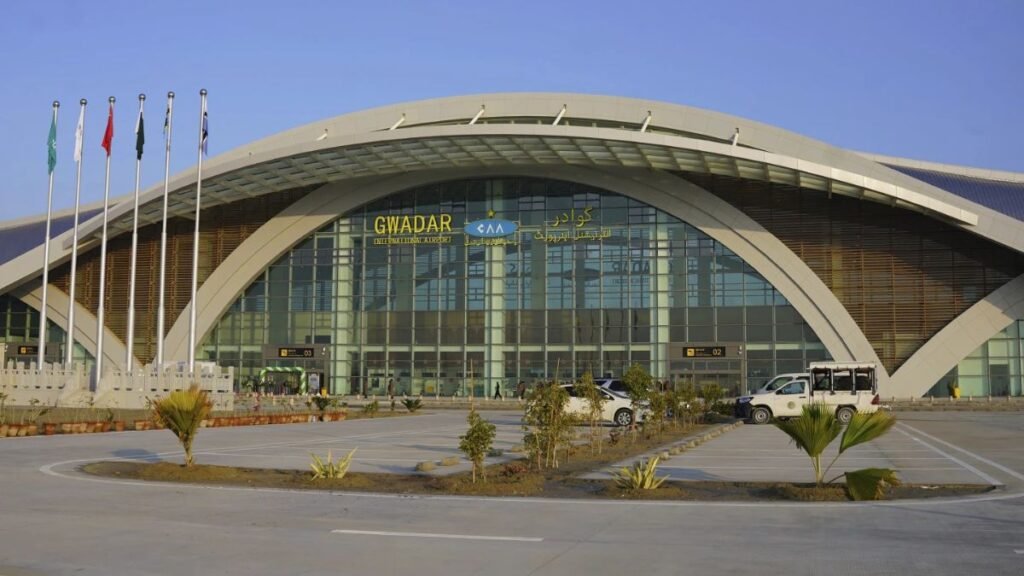Pakistan’s mysterious Gwadar International Airport has been entirely funded by China, built at a high cost of USD 240 million, drawing a sharp contrast to the impoverished Balochistan province that houses it.
Pakistan’s new Gwadar International Airport, entirely financed by China, is a conundrum built at a steep cost of USD 240 million. With no passengers, no planes and a hush-hush inaugural ceremony, the airport invokes mystery over its construction. Located in the coastal city of Gwadar and completed in October 2024, the airport is a stark contrast to the impoverished, restive southwestern Balochistan province around it.
However, authorities have hailed it as “transformational” but there’s scant evidence of change in Gwadar. The city isn’t connected to the national grid — electricity comes from neighboring Iran or solar panels — and there isn’t enough clean water. An airport with a 400,000 passenger capacity isn’t a priority for the city’s 90,000 people.
The answer: “It is for China, so they can have secure access for their citizens to Gwadar and Balochistan.” “This airport is not for Pakistan or Gwadar,” Azeem Khalid, an international relations expert who specializes in Pakistan-China ties made it very clear.
‘Could be the ideal launchpad for an attack’
The inauguration of the Gwadar airport was delayed due to security concerns. There were fears the area’s mountains, and their proximity to the airport, could be the ideal launchpad for an attack. Instead, Pakistani Prime Minister Shehbaz Sharif and his Chinese counterpart Li Qiang hosted a virtual ceremony. The inaugural flight was off limits to the media and public.
Abdul Ghafoor Hoth, district president of the Balochistan Awami Party, said not a single resident of Gwadar was hired to work at the airport, “not even as a watchman.”
For the past decade, China has poured money into Balochistan and Gwadar as part of a multibillion dollar project that connects its western Xinjiang province with the Arabian Sea, called the China-Pakistan Economic Corridor or CPEC.
Protests over living conditions in Gwadar
In December, Gwadar witnessed daily protests over living conditions in the area. The protests stopped 47 days later, once authorities pledged to meet the locals’ demands, including better access to electricity and water.
No progress has been made on implementing those demands since then. Without local labour, goods or services, there can be no trickle-down benefit from CPEC, said international relations expert Khalid. As Chinese money came to Gwadar, so did a heavy-handed security apparatus that created barriers and deepened mistrust.
“The Pakistani government is not willing to give anything to the Baloch people, and the Baloch are not willing to take anything from the government,” said Khalid.
(With inputs from the Associated Press)
